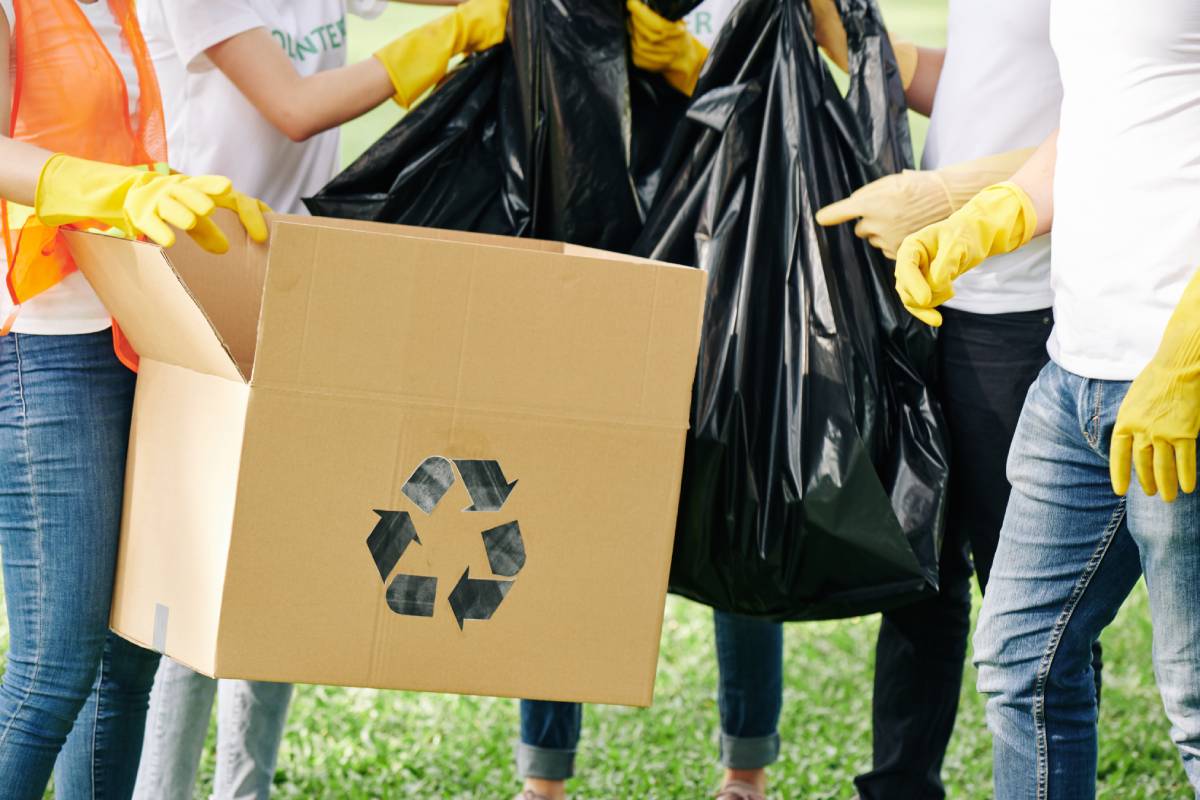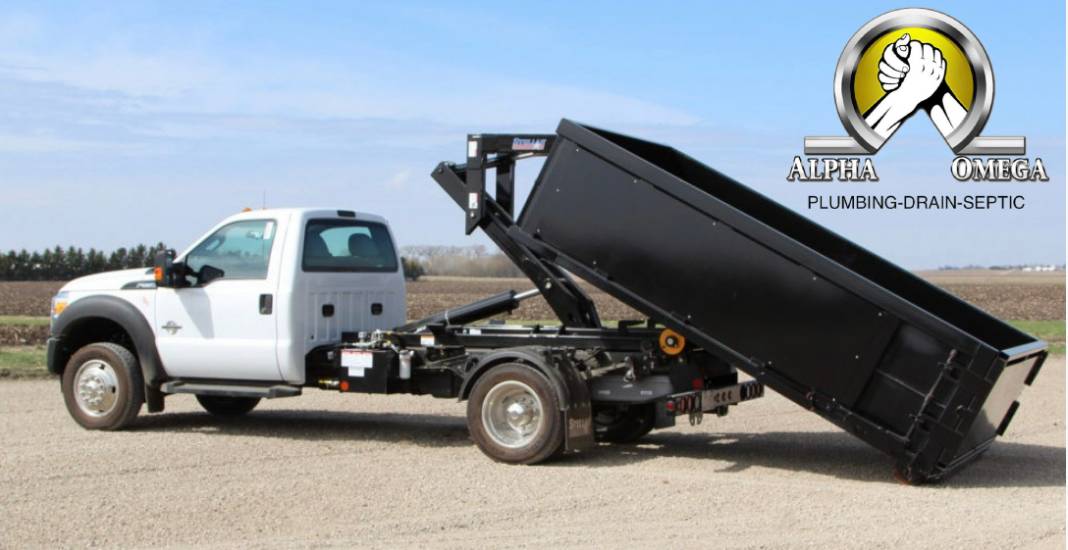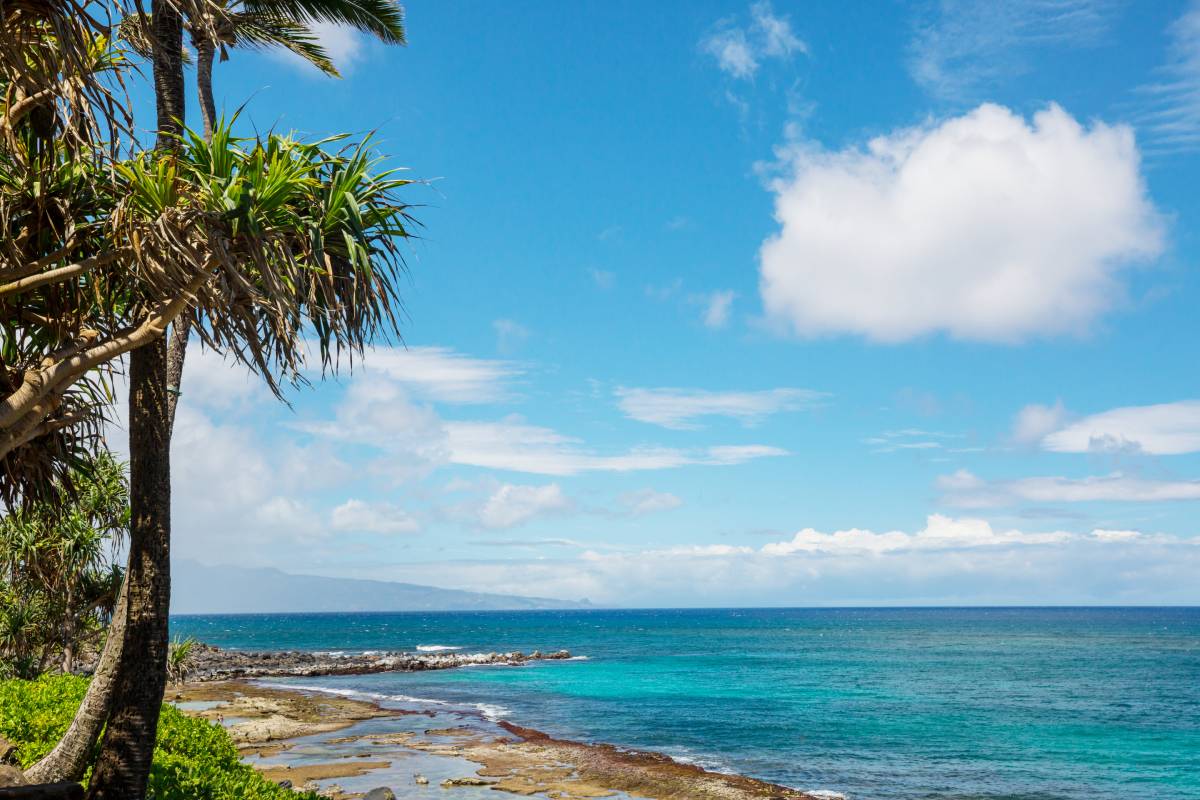Unveiling the Green Impact: How Junk Removal Services Contribute to a Cleaner Environment

In the lush landscapes of Hawaii, maintaining the pristine beauty of the island is a collective responsibility. At Alpha Omega Plumbing and Septic, we understand the crucial role that junk removal services play in achieving this goal. In this blog, we’ll delve into the significant contributions of our junk removal specialists to community cleanup initiatives, highlighting their efforts in preserving the environment and keeping Hawaii clean.
Efficient Removal of Unwanted Items
Junk removal services are instrumental in efficiently clearing unwanted items from homes, businesses, and public spaces. Depending on a company with expertise can ensure that the removal process is seamless, addressing the needs of our community and contributing to a clutter-free environment.
Community Cleanup Initiatives
Junk removal specialists actively participate in community cleanup initiatives across Hawaii. By partnering with local organizations and residents, they take part in organized cleanup events to remove debris, discarded items, and waste from public spaces. These efforts contribute to the overall cleanliness and visual appeal of Hawaiian neighborhoods.
Recycling and Responsible Disposal
At Alpha Omega Plumbing and Septic, we prioritize environmentally conscious practices. Our junk removal services go beyond mere disposal – we emphasize recycling and responsible waste management. By sorting and recycling materials whenever possible, we minimize the environmental impact and promote sustainability.
Supporting Sustainable Practices
Junk removal specialists play a pivotal role in supporting sustainable practices. By adhering to Hawaii’s environmental regulations and ensuring proper waste disposal, they contribute to the island’s commitment to sustainability. Our services align with the principles of reducing landfill waste and embracing eco-friendly alternatives.
Preserving Hawaii’s Natural Beauty
Hawaii’s natural beauty is a treasure that requires protection. The efforts of junk removal specialists directly contribute to preserving this beauty by eliminating unsightly clutter and promoting a cleaner, more aesthetically pleasing environment. We believe in creating spaces that residents can take pride in.
Tailored Solutions for Diverse Needs
Recognizing that different projects have unique requirements, our junk removal services offer tailored solutions. Whether it’s a residential cleanout, commercial project, or community event, Alpha Omega Plumbing and Septic ensures that the waste removal process is efficient, effective, and aligned with environmental stewardship.
Conclusion
Alpha Omega Plumbing and Septic’s commitment to a cleaner environment goes hand in hand with our junk removal services. By actively participating in community cleanup initiatives, promoting recycling, and adhering to responsible disposal practices, our team plays a vital role in preserving Hawaii’s natural charm. Together, with the support of our community, we can continue to create a cleaner, greener, and more sustainable future for Hawaii.
Responsible Disposal in Paradise: A Guide to Ethical Junk Removal in Oahu

In the scenic landscapes of Oahu, Hawaii, responsible waste management is crucial to preserve the pristine beauty of the island. At Alpha Omega Plumbing and Septic, we believe in fostering a sustainable environment. In this blog, we’ll guide you through the art of responsible disposal, highlighting environmentally conscious practices for junk removal that align with Oahu’s stringent environmental regulations.
Reduce, Reuse, Recycle: The Three R’s Rule
Before considering disposal, always explore options to reduce, reuse, and recycle. In Oahu, several recycling centers and thrift stores provide opportunities to give unwanted items a second life. By adopting these practices, you contribute to a circular economy, minimizing the impact on the environment.
Segregate Waste Properly
Oahu has specific regulations regarding waste segregation. It’s vital to separate recyclables, green waste, and general waste appropriately. Understand the guidelines provided by local authorities to ensure compliance.
Utilize Oahu’s Bulky Item Collection Services
Oahu offers bulky item collection services for large items that cannot be handled through regular curbside pickup. Take advantage of this service to dispose of furniture, appliances, and other oversized items responsibly. Schedule a pickup with the local waste management agency to ensure proper disposal.
Electronic Waste Recycling
Electronic waste, or e-waste, poses unique challenges due to its hazardous components. Instead of tossing old electronics, explore dedicated e-waste recycling facilities on the island. Many retailers also offer e-waste recycling programs, making it convenient for residents to responsibly dispose of their electronic items.
Hazardous Waste Disposal
Certain items, such as paints, chemicals, and batteries, fall under hazardous waste. It’s essential to handle these materials with care to prevent environmental harm. Oahu has designated facilities for the disposal of hazardous waste. Contact local authorities for guidance on proper disposal methods.
Composting Green Waste
Embrace composting for green waste like yard trimmings and food scraps. Composting not only reduces landfill waste but also produces nutrient-rich compost that can be used to enrich soil. Explore local composting initiatives and contribute to Oahu’s efforts in sustainable waste management.
Stay Informed About Landfill Policies
Oahu’s landfill policies are designed to minimize the impact on the island’s ecosystems. Stay informed about landfill regulations, including prohibited items and disposal fees.
Conclusion
At Alpha Omega Plumbing and Septic, we are committed to promoting responsible waste management practices in Oahu. By incorporating the three R’s, utilizing local services, and adhering to environmental regulations, you can play a crucial role in preserving the natural beauty of this Hawaiian paradise. Let Alpha Omega Plumbing and Septic take the work off of your plate by renting a dumpster or roll-off opala (trash) bin. They will ensure that everything is disposed of properly. Let’s work together to keep Oahu clean and sustainable for generations to come.
Island Plumbing: Separating Fact from Fiction | Part Two

Welcome Back to the Alpha Omega Plumbing and Septic Blog Series
Aloha, readers! This month we’re diving right back into the heart of Hawaii, where plumbing misconceptions are as common as coconuts. At Alpha Omega Plumbing and Septic, we will continue to debunk these misconceptions. Join us as we share our knowledge and expertise to keep your plumbing running smoothly.
Rainwater Risks and Realities
Fiction: “Rainwater is Safe to Drink Straight from the Gutters”
While Hawaii is known for its tropical climate and clean air, it is not entirely accurate to claim that rainwater is always safe to drink straight from the gutters. Several factors contribute to the potential contamination of rainwater, even in a relatively pristine environment:
- Airborne Contaminants: Rainwater can pick up contaminants from the air as it falls. In urban areas, pollutants from industrial activities, vehicle emissions, and other sources can be present in the atmosphere. Even in less urbanized locations, airborne particles such as dust, pollen, and microorganisms can be carried by rainwater.
- Roof Material and Debris: The material of the roof and any debris present on it can affect the quality of rainwater. Roofs may accumulate dust, bird droppings, or other debris that can contaminate the water. Additionally, the material of the roof itself, especially if it contains substances like lead or other pollutants, can leach into the collected rainwater.
- Microbial Growth: Stagnant water in gutters can become a breeding ground for bacteria, algae, and other microorganisms. Even on a tropical island like Hawaii, where temperatures are generally warm, microbial growth can occur, especially in areas with insufficient sunlight or where debris has accumulated.
- Waterborne Pathogens: Rainwater can come into contact with bird droppings, animal feces, or other sources of potential pathogens on rooftops. This contact can introduce harmful bacteria, viruses, or parasites into the collected rainwater.
- Lack of Filtration: Rainwater collected directly from gutters lacks the filtration process that occurs in natural water sources. Without proper filtration, contaminants that may be present on the roof or in the gutters are not removed, making the water potentially unsafe for consumption.
To ensure the safety of rainwater for drinking purposes, it is essential to implement proper collection and purification methods. This may include:
- Using Filtration Systems: Install a filtration system to remove particulate matter, debris, and potential contaminants from collected rainwater.
- Regular Cleaning: Keep gutters and roofing materials clean to minimize the accumulation of pollutants and debris.
- Boiling or Purification: If rainwater is to be used for drinking, it should be boiled or treated with appropriate purification methods to eliminate harmful microorganisms.
While rainwater harvesting can be a sustainable practice, it’s crucial to be aware of the potential risks associated with drinking untreated rainwater. Implementing proper precautions and purification methods ensures that rainwater can be used safely for various purposes.
Tankless Truths
Myth: “Tankless Water Heaters Never Need Maintenance”
While tankless water heaters are known for their efficiency and longevity, it is not accurate to claim that they never need maintenance. Like any mechanical system, tankless water heaters can experience wear and tear over time, and regular maintenance is crucial to ensure optimal performance and prevent potential issues. Here are some reasons why tankless water heaters do, in fact, require maintenance:
- Scale Buildup: In areas with hard water, mineral deposits such as calcium and magnesium can accumulate on the heat exchanger of a tankless water heater. This scale buildup can reduce efficiency, hinder heat transfer, and potentially lead to overheating. Regular descaling is necessary to prevent these issues.
- Flushing the System: Tankless water heaters can accumulate sediment and debris over time, affecting their performance. Flushing the system helps remove these impurities and ensures a clean and efficient operation. It also helps prevent clogs in the water lines and extends the life of the unit.
- Checking for Leaks: Over time, connections and seals in a tankless water heater may experience wear, leading to potential leaks. Regular maintenance involves inspecting the unit for any signs of leaks and addressing them promptly to prevent water damage.
- Inspecting Venting System: Proper venting is essential for the safe operation of a tankless water heater. Inspecting the venting system ensures that combustion gasses are vented safely to the outside. Any blockages or issues with the venting system need to be addressed to prevent safety hazards.
- Verifying Combustion and Ignition: Tankless water heaters rely on combustion for heating water. Ensuring that the burner is clean, the ignition system is working correctly, and combustion is efficient is part of routine maintenance. This helps prevent issues such as incomplete combustion and the release of harmful gases.
- Checking for Error Codes: Tankless water heaters are equipped with diagnostic systems that can detect issues and display error codes. Regular maintenance involves checking for error codes and addressing any identified problems to prevent further damage.
- Inspecting Gas Connections: For gas-powered tankless water heaters, checking gas connections is essential to prevent gas leaks. Properly functioning gas connections are crucial for the safe operation of the unit.
- Testing Pressure Relief Valve: The pressure relief valve is a safety feature that releases excess pressure from the system. Regular maintenance involves testing this valve to ensure it operates correctly and prevents overpressure.
By addressing these maintenance tasks regularly, homeowners can enhance the longevity of their tankless water heaters and maintain their efficiency. While tankless systems generally require less maintenance than traditional tank water heaters, they are not maintenance-free, and neglecting routine care can lead to performance issues and potential costly repairs.
Conclusion
We will finish out this series next month, but as always remember that accurate information comes from trusted sources, like the experts of Alpha Omega Plumbing and Septic. Contact them today to ensure your plumbing systems are receiving the maintenance they need to function properly in paradise.